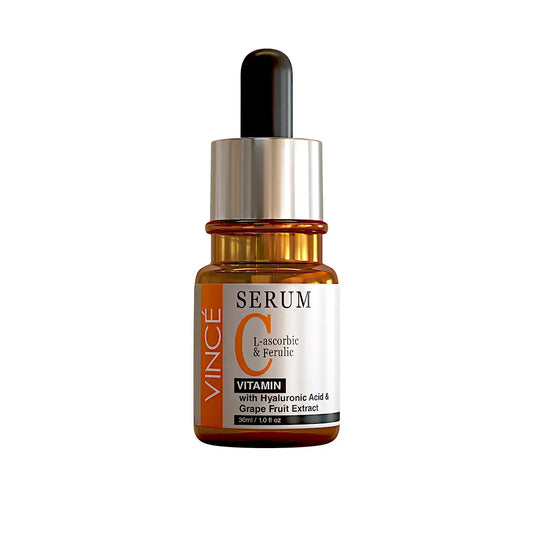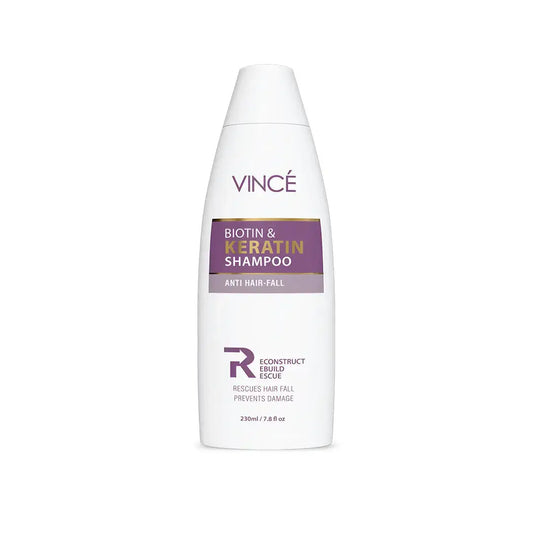10 Best Remedies to Keep Your Skin Moisturized

Daily moisturizing is essential for healthy skin, yet some consider it an aesthetically pleasing habit.
Our skin is the largest organ of the body, and it needs regular attention to stay young, blemish-free, glowing, and healthy. To understand how important it is to moisturize your skin, read on.
People with dry skin are not the only ones who experience dryness. People with normal, combination and oily skin also need moisture. Moisturizer is essential for beautiful skin in any season.
Daily moisturizer can give your skin a healthy glow. However, climate change and the sun's UV rays can damage the skin and cause it to become scorched. This dryness can cause dry spots, itching, and other skin problems.
If you keep your skin free from these problems, you should moisturize your skin daily.
What Is Hydrated Skin?
Hydrating your skin means drinking more water. Dehydrated skin can look flaky, dull, and dry.

Hydrated skin has a smooth, radiant, and even tone appearance. It would help if you quenched your skin's thirst with water to achieve this.
However, people confuse dehydrated skin with dry skin.
What Causes Dehydrated Skin?
1. Extreme Temperatures
Significant temperatures can damage your skin's natural barrier. Although extreme temperatures can be challenging to avoid, ensure you keep your exposure to a minimum.
2. Over Exfoliation
Excessive exfoliation can damage your skin's natural moisture barrier. It can be more harmful if you use harsh, abrasive products while exfoliating your skin.
3. Aggressive Cleansers
Skincare products with harmful ingredients can damage your skin's ability to retain moisture.
4. Air Conditioning
Lack of moisture due to air conditioning units can damage the health of your skin, and lack of humidity damages the skin's moisture barrier, leading to dehydration.
Dehydrated Skin Vs. Dry Skin
Dehydrated skin is due to lack of hydration, while dry skin is severely deficient in sebum. Dry skin is also the result of certain medications or diseases.
Factors such as climate, lifestyle, age, and the products used on your skin can cause changes in your skin type.
Symptoms of Dry Skin
Symptoms of Dehydrated Skin
Hydration Vs. Moisturization
When you need to add water to your skin to hydrate it, it is called hydration. Moisturizing your skin means adding ingredients that hydrate your skin from the inside out. Moisturization and hydration go hand in hand. Moisturizing involves adding ingredients that trap moisture and heal your skin. It prevents dehydration and improves the texture and health of your skin.
When to Moisturize your skin?
The most crucial time to use moisturizer is after a bath, shave, or exfoliation. For some people, this can happen twice a day. It is essential to moisturize after showering because warm water removes all the moisture and oil from your skin and makes it dry. While warm water can be soothing, it can also damage your skin.
Well there are other great natural tips to make your skin moisturized. You can follow it. That can help you naturally to make your skin hydrated.
Why Moisturizing Is So Important?
Whether your skin is oily or dry, moisturizer is a great product to incorporate into your daily skincare routine. Moisturizers keep your skin hydrated and fresh. With time, the oil glands that keep the skin healthy begin to lose their strength, where they produce less oil. Moisturizing daily does not require the glands to work hard to keep your skin healthy for life.
1. Reduces Skin Problems
When your skin becomes dry, imbalances can cause many problems with your skin. For example, you may notice redness, increased incidence of acne, and even glowing skin with more oil production. To avoid this, you need a good moisturizer that balances your skin.
For dry skin, you should go with a moisturizing cream or lotion to hydrate your skin and balance the amount of moisture. In addition, you may want to go with lotions for naturally oily skin, as these moisturizers have significantly lower oil content.
2. To Look And Feel Young
Some parts of your skin change cells more often than the rest of your skin. It can include your ears, neck, chest, and face. When your skin is fresh, it can be more sensitive to the effects of sunlight and weather.
It means that the skin in these areas is much less elastic than other body parts when there is any damage. Your skin can become healthy, glowing, and youthful by using a moisturizer.
3. Moisturizer Also Helps Fight Wrinkles
No one wants to look old so early. By incorporating moisturizers into your daily routine, you can keep wrinkles minimum. When you apply moisturizer, it strengthens your skin and reduces wrinkles. As the skin dries out, wrinkles become more pronounced, and people begin to look older.
Mistakes to Avoid
There's much information about what you should and shouldn't do on your skin. Although everyone's skin is different, there are a few things to avoid as you are making a skincare routine.
1. Avoid spending unprotected time in the sun
Sun damage can lead to uneven complexion, premature ageing, and skin cancer. So remember to screen up, cover-up, and protect your skin.
2. Avoid applying lemons and other citrus fruits
Acidity is often used to treat acne. However, lemons contain a chemical that makes the skin UV sensitive for many hours and can cause severe burns. Citrus can also cause blisters or color changes that last for months.
3. Please don't overdo it
Frequent home or OTC skin treatments can cause skin irritation and inflammation, leading to breakouts or rashes. Most people need to exfoliate once or twice a week unless their skin is oily.
Wash and moisturize your face in the morning and apply sunscreen daily. Masks and excessive washes sometimes promote your skin, but they should not be a daily skincare regimen because they can dry out your skin.
4. Don't ignore skin type
Is your skin oily or dry? Knowing skin type can help to determine which skin treatment will work best. For example, if you suffer from breakouts, beware of moisturizers that prevent pores like olive oil.
Also, if you have T-zone or combination skin, you may need different treatments on your cheeks than on the forehead and nose.
Hands off: Your hands contain dirt, bacteria, and oil which block the pores. Always wash your hands to keep bacteria away; try not to touch your face before applying any product to your skin.
5. Take care of the product
The popular facial treatment can cause blemishes if a product contains the wrong ingredients.
6. Walk on cinnamon easily
Cinnamon's natural antibacterial properties can help treat acne. However, it can cause skin irritation and is a common allergen. Do not apply on your face
without first testing the patch or mixing it with honey, yoghurt, or another mild ingredient.
Home Remedies to Keep Your Skin Moisture
Keeping the skin hydrated makes it look younger and healthier and reduces the risk of premature ageing. There are many ways to bring back moisture in and out of the skin. Here are some tips to help you keep your skin moisturized.
1. Coconut Oil
Coconut oil has antioxidant, anti-inflammatory, and healing properties. But using coconut oil on the face may not work for all skin types. Also, do not use it if you are allergic to coconut.

Coconut oil is indeed a good moisturizer. First, try to rub a small amount of coconut oil on your face. Then, wait to soak it and wash it with your regular cleanser.
2. Aloe Vera
Aloe vera has healing properties. It can stimulate the growth of new cells. It provides calming effects and moisturizes the skin without closing the pores. After washing your face every day, use aloe vera face wash. that gives your skin a healthy glow.

Try it by rubbing a small amount on your arm first, and if no reaction appears, it should be safe to use.
3. Apply Moisturizer Properly After Washing Your Face
Moisturize the skin with products that retain moisture, promote healing, and have antioxidant properties to upgrade a radiant, youthful look. Don't exfoliate when your skin feels dry, and don't leave the moisturizer on just because your skin feels oily.
4. Wear Sunscreen Daily
Wearing sunscreen with an SPF can prevent skin tanning. In addition, protecting your skin from harmful UV rays reduces the process of skin ageing.
Make sure to apply sunblock every morning, even when it is raining, or the sky is cloudy.
5. Cleaning Routine
You don't want to wash your skin too often to absorb moisture, to compensate for too much washing. Washing your face after sweating, early in the morning, and before going to bed, is usually a lovely place for healthy skin.
6. Moisture-Boosting Creams/Lotions
All moisturizers are not made equal in the result. Women who want a cream that replenishes skin moisture should contain ingredients that attract glow. Vince Multi-level moisturizing cream is the best option for everyone.

Also, you can use Vince Hydrating Body Milk, which is the complete solution for your whole body skin.
7. Drink Plenty of Water
Your skin cells need water to function correctly. Unfortunately, the relationship between drinking water and healthy skin is still ongoing. Still, at least one study concluded a strong link between drinking more water and healthy skin—plan to drink at least eight glasses of water daily.
8. Eat To Nourish Your Skin
Eating a diet rich in fruits will increase your body's number of vitamins and antioxidants. In addition, according to the study, eating healthy fats like fish oil and avoiding processed foods containing many preservatives are directly related to healthy-looking skin.
9. Honey Help
Honey not only has antibacterial properties but also cleanses the skin. Applying honey on the face can smooth out dry and dull skin and help it glow. Leave the raw honey on the skin for 30 minutes, then wash with warm water. It can be used for dry spots on elbows and knees, and it is also quite soft for the face.
10. Shorten Your Shower
Steam and heat can open up holes and help get rid of toxins. But pouring hot water on the skin for more than a few minutes can cause oil to come out of your skin, making it look tired and dull. So try to minimize the exposure of your skin to water which is very hot.
You can also consider cooling down the temperature at the end of your shower to improve circulation, making your face look more even-toned and younger.
Conclusion
Taking care of skin is a form of self-care that can pay off in seemingly glowing skin. Sometimes stress, malnutrition, hormonal imbalances, and other health conditions can make it more difficult to get glowing skin. Dull, dry, flaky skin can signify other health conditions.




